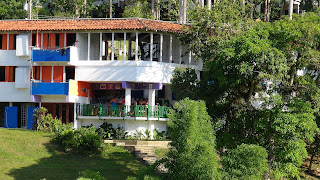Nick Dettorre
Reporting from Havana
It is believed Christopher Columbus once described Havana as the, “loveliest land ever beheld by human eyes.” Today, much of the old city is in ruins. Years of neglect and unfortunate weather have reduced many of the buildings in the heart of Havana to rubble. In some cases, facades stand as an empty reminder to 16th and 17th century (or colonial) architecture that once stood proud along cobblestone streets.
Reporting from Havana
It is believed Christopher Columbus once described Havana as the, “loveliest land ever beheld by human eyes.” Today, much of the old city is in ruins. Years of neglect and unfortunate weather have reduced many of the buildings in the heart of Havana to rubble. In some cases, facades stand as an empty reminder to 16th and 17th century (or colonial) architecture that once stood proud along cobblestone streets.
However, there is some truth in Columbus’ words. Parts of the city are under renovation, and the students tasked with the job are using many of the same techniques that built the city Columbus encountered more than 500 years ago.






















 by Arianna Kemis
by Arianna Kemis 























